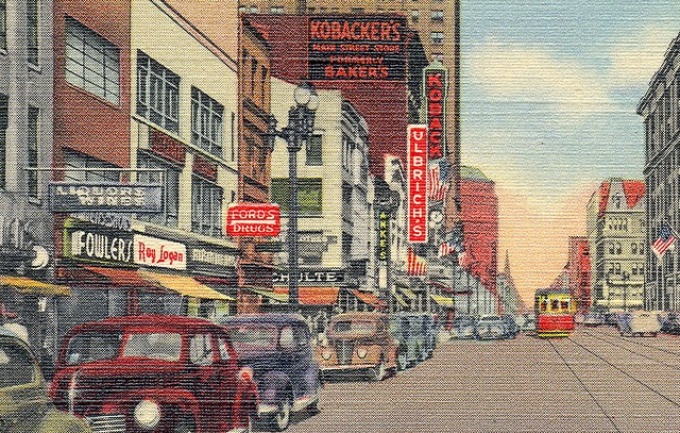Experiential Learning Opportunities

On this page:
The National Council on Public History defines the field as “the many and diverse ways in which history is put to work in the world.” Museums, historical societies, and cultural or preservation organizations provide opportunities for students to bridge their classroom academic work with hands-on experience. Some majors have elected to take on an internship because they wish to pursue a career in public history; others want to find an intellectually-stimulating activity outside the classroom. Students work with a variety of age groups and choose from among a variety of rural, suburban, and urban settings and through the internship find a new or renewed connection to the local community. These local internships can be useful for students who wish to apply for national internship programs, like those at the Smithsonian Institution.
REQUIREMENTS
- Arranged by student, in consultation with Director of Undergraduate Studies, with force registration into HIS 496 at the end of the consultation
- A commitment of 8-10 hours/week for the semester/summer (112-140 hours)
- 7-10 page paper by intern detailing responsibilities, reflecting on the experience, and connecting internship to academic course work and/or career or post-graduate education plans, submitted to Director of Undergraduate Studies
- Letter of evaluation, on letterhead, from supervisor describing the intern’s responsibilities and evaluating his or her performance; directed to Director of Undergraduate Studies
- Student graded (A-F) on quality of paper and performance and awarded 3 credits
- Please note: HIS 496 does not satisfy the seminar requirement of the major
FINDING AN INTERNSHIP
Contact a historical organization of your choice in consultation with the Director of Undergraduate Studies. You may pursue internships outside WNY. When you have identified a host institution, notify the History Department’s Director of Undergraduate Studies. The director will approve eligible internships and give permission for force-registration in HIS 496.
STUDENTS’ EXPERIENCES:
Mark Boonshoft, Jewish Buffalo Archives Project:
“I signed up to do public history internship credits at the Jewish Buffalo Archives Project because I thought it was a place where I would receive individualized attention from my mentor and thus get more out of the program. I turned out to be correct.”
“I transcribed oral histories and, firsthand, saw the value of that form of history…(T)he archives that I am currently processing could one day be the basis of an article or monograph about Buffalo’s response to the Soviet Jewry crisis which, beyond being interesting on its own, could perhaps help future historians make sense of the local movements in cities to help Soviet Jewish refugees.”
Stephanie Molnar, Buffalo Niagara History Museum:
“I love going to museums and viewing their exhibits, but I never realized how much work went into their preparation. Helping in the storing and cataloging of museum artifacts helped me to appreciate the value in seemingly small items and their connection to the past. A 19th-century mousetrap, for example, is no longer just a contraption of metal and wood, it is now a window into domestic practices of people many years ago.”
Sarah MacLean, Black Rock-Riverside Good Neighbors Planning Alliance:
“The Black Rock-Riverside Good Neighbors Planning Alliance has created a plan for redeveloping their community as a historic neighborhood. The Black Rock public history internship is a part of this community project that is working toward attaining rehabilitation funding to support their efforts.”
“The University is creating a bridge between academia and the local community, and giving support to the preservation of that community’s history…The project offers experience in presenting historical knowledge to the public and to further add cultural and social meaning to an old neighborhood. For a history and anthropology major, it is important to develop an understanding of how to broaden knowledge that embraces the past, present, and future at the same time.”
Research opportunities outside the departmental Honors program are also possible through Independent Study and Research (HIS499) with a faculty mentor. Students should seek advisement with the Director of Undergraduate Studies who can help to identify suitable mentors.
Project Portal
Start a project to build skills and gain real-world experience for your career. The Experiential Learning Network's Project Portal is the easiest place to get started! Once you start a project, you can also pursue an ELN Digital Badge to display your accomplishments to future employers and graduate schools.
History is a natural major when pursuing studies outside the USA. To support study abroad, the department offers yearly scholarships to those attending accredited programs. The Director of Undergraduate Studies will review study abroad course offerings with students to select courses that satisfy student interests and fulfill requirements.
Milton Plesur and Schoellkopf Awards for Study Abroad: Each year the History Department awards study abroad scholarships to qualified History majors enrolling in a recognized summer, semester, winter intersession, or year-long study abroad program. Study abroad scholarship forms are available online. The department holds a competition in the fall for spring semester study abroad and one in the spring for summer, fall, and full academic year programs.
Two other funding opportunities for study abroad:
Professor Cari Casteel
When: Tuesdays 12 p.m. – 3 p.m.
Email the DGS for an appointment.
Monday–Friday | 9 a.m.– 4 p.m.
Email: UBHIS@buffalo.edu
Phone Number: (716) 645-2182



